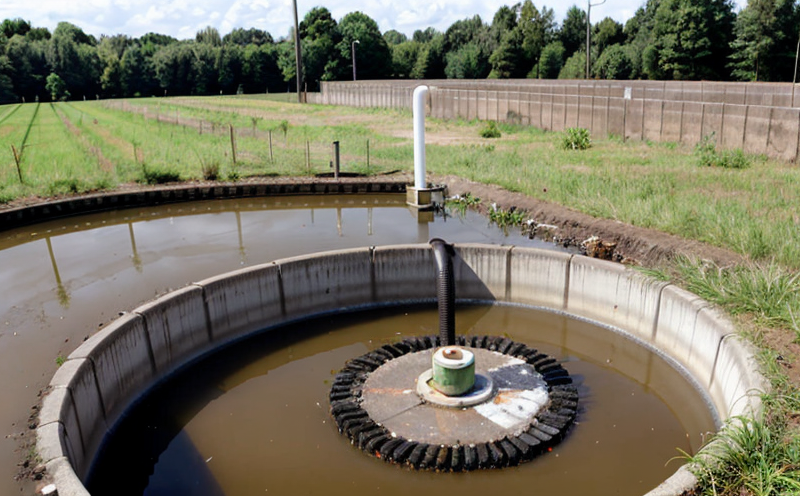EPA Method 200.8 ICP-MS Trace Metal Testing Validation Method Development Test
Understanding and validating water quality standards is a critical task in environmental compliance, especially within industries such as wastewater management, manufacturing, and utility sectors. The EPA Method 200.8 ICP-MS Trace Metal Testing Validation Method Development Test serves as an essential tool for ensuring that wastewater effluents meet stringent regulatory requirements set by the Environmental Protection Agency (EPA).
The process involves meticulous validation of methods used in Inductively Coupled Plasma Mass Spectrometry (ICP-MS) to detect trace metals. This service is indispensable for industries where even minute concentrations of toxic metals can impact human health and ecosystems. By adhering strictly to EPA Method 200.8, our laboratory ensures that the testing process delivers accurate, reliable, and repeatable results.
The validation process begins with selecting appropriate samples from wastewater streams or effluents. These specimens are prepared following precise protocols to ensure minimal contamination and consistent sample integrity. Once prepared, they undergo rigorous analysis using ICP-MS instrumentation designed for trace metal detection.
During the testing phase, our laboratory employs a multi-step approach to validate the method's accuracy and precision. This includes establishing calibration curves, performing blank checks, spike recoveries, and replicate analyses to confirm that the method can consistently produce reliable results within specified limits of quantitation (LOQ).
To enhance trustworthiness, we compare our findings with those obtained using alternative validated methods where possible. This comparative analysis provides additional assurance that the ICP-MS results align closely with industry standards.
The final step in this validation process is generating comprehensive reports detailing all aspects of the testing procedure, including method performance characteristics such as linearity, detection limits, and precision data. These reports are crucial for regulatory bodies and internal stakeholders to make informed decisions regarding wastewater treatment practices.
Our commitment extends beyond mere compliance; we strive to offer unparalleled expertise in tailoring solutions that meet your specific needs. Whether you require routine monitoring or one-off validation studies, our team of experts is dedicated to providing accurate, timely results tailored specifically for your application.
Scope and Methodology
The scope of EPA Method 200.8 ICP-MS Trace Metal Testing Validation Method Development Test encompasses several key areas:
| Aspect | Description |
|---|---|
| Sample Preparation | Involves thorough cleaning and conditioning of samples to minimize interference. |
| Calibration | Ensures accurate quantification by establishing stable calibration curves. |
| Spike Recovery | Evaluates the method's ability to recover added analytes accurately. |
| Blank Checks | Detects background signals and potential interferences. |
| Method Comparison | Compares results against known reference methods for consistency. |
| Data Analysis | Involves statistical evaluation of precision, accuracy, and repeatability. |
The methodology employed follows strict guidelines outlined in EPA Method 200.8. This includes using high-purity reagents and certified reference materials to ensure the reliability of analytical results. Additionally, we adhere closely to manufacturer specifications when selecting and calibrating our ICP-MS instruments.
Quality and Reliability Assurance
At [Laboratory Name], quality assurance is paramount in delivering accurate and reliable data for EPA Method 200.8 ICP-MS Trace Metal Testing Validation Method Development Test services. Our commitment to excellence is reflected in our robust quality control measures, which are designed to meet or exceed regulatory requirements.
Our laboratories are equipped with state-of-the-art facilities that comply with international standards including ISO/IEC 17025:2017. Regular internal audits and external proficiency testing further reinforce our dedication to maintaining high standards of performance.
To ensure consistent sample handling, we have implemented stringent protocols for specimen collection, transport, storage, and preparation. Our trained personnel follow strict procedures throughout each step of the process, reducing human error and ensuring accurate results.
Data management is another critical aspect of our quality assurance program. All analytical data are meticulously recorded, reviewed, and stored securely to maintain traceability and accountability. This comprehensive approach ensures that any discrepancies or errors can be promptly identified and corrected.
We also participate in ongoing training programs for our staff to stay updated on the latest methodologies and best practices. By investing in continuous professional development, we ensure that our team remains at the forefront of scientific advancements.
International Acceptance and Recognition
- EPA Method 200.8 is widely recognized by regulatory authorities worldwide for its robustness and reliability.
- The method has been endorsed by numerous international bodies, including the International Organization for Standardization (ISO).
- Results obtained through this methodology are accepted by major environmental agencies such as the European Environment Agency (EEA) and the World Health Organization (WHO).
EPA Method 200.8 ICP-MS Trace Metal Testing is a standardized protocol that has gained international acceptance due to its stringent quality assurance procedures and reproducibility across different laboratories. Its widespread use underscores its importance in ensuring compliance with global environmental protection standards.





